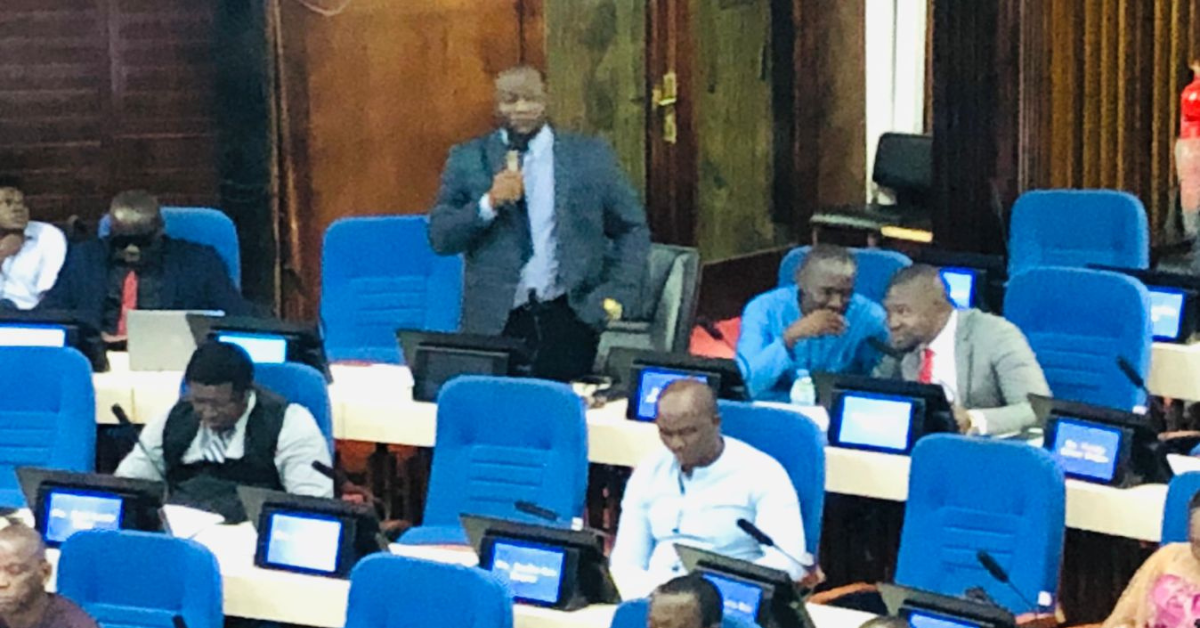In a fervent parliamentary session following the State Opening of the second session of the Sixth Parliament, Hon. Alpha Ben Mansaray, Deputy Spokesman of the opposition All Peoples Congress (APC), sharply critiqued the government’s achievements highlighted in the presidential address.
Delivered on August 6, the address received scrutiny from Mansaray, who argued that the current administration’s accomplishments lack concrete benefits for the public.
Speaking from the esteemed Well of Sierra Leone, Mansaray lauded the eloquence of the representative from Bo before pivoting to express disappointment at what he described as unsubstantiated claims of progress in the presidential address.
Mansaray’s remarks underscored the need for bipartisan collaboration, calling for “democratic dialogue” to ensure sustainable economic growth and a collective commitment to national advancement, a message that resonated with both parliamentarians and the public.
The Deputy Spokesman voiced strong concerns over the current administration’s handling of energy and infrastructure projects, comparing recent efforts unfavorably with those initiated by the previous APC-led government. He cited APC achievements such as the Rural Renewable Energy Projects, which brought electricity to 54 rural communities and benefitted 360,000 residents, as a stark contrast to the current government’s extension of services to only 40 additional communities.
He further highlighted critical infrastructure accomplishments under former President Ernest Bai Koroma, including the construction of the Rogbere and Mabang bridges, emphasizing that these initiatives have substantially supported national connectivity and trade.
Mansaray also criticized the current government’s fragmented approach to human capital development, warning that this could hinder long-term socio-economic progress.
Citing Singapore’s holistic model of human capital growth through investments in education, healthcare, and vocational training, he urged Sierra Leonean officials to establish concrete, measurable goals in training healthcare professionals. With the country’s rising population, he emphasized that addressing workforce shortages, particularly in healthcare, was essential to meeting public health needs.
Turning his focus to the healthcare sector, Mansaray underscored critical issues in service accessibility, particularly ambulance shortages and absenteeism among doctors.
He highlighted the case of a pregnant woman who lost her life due to delayed medical care as a stark example of the sector’s challenges. Additionally, Mansaray raised concerns over insufficient teacher salaries, rising inflation, and high school dropout rates, emphasizing that systemic financial support is essential to keep young students, especially girls, in school.
The Deputy Spokesman concluded by calling for a long-term, non-political commitment to education reform, advocating for reliable resource allocation and improved oversight to tackle issues such as bribery in school approval processes. He urged Parliament to take decisive action to ensure Sierra Leone’s educational framework supports equitable access and advancement for all.
In his closing remarks, Mansaray stressed the gravity of the challenges at hand, calling on Parliament to engage in meaningful discourse and seize this moment to secure a prosperous future for the nation.











